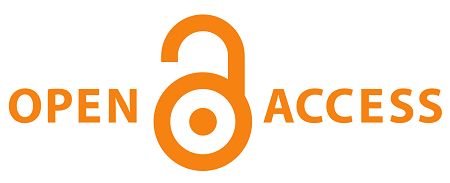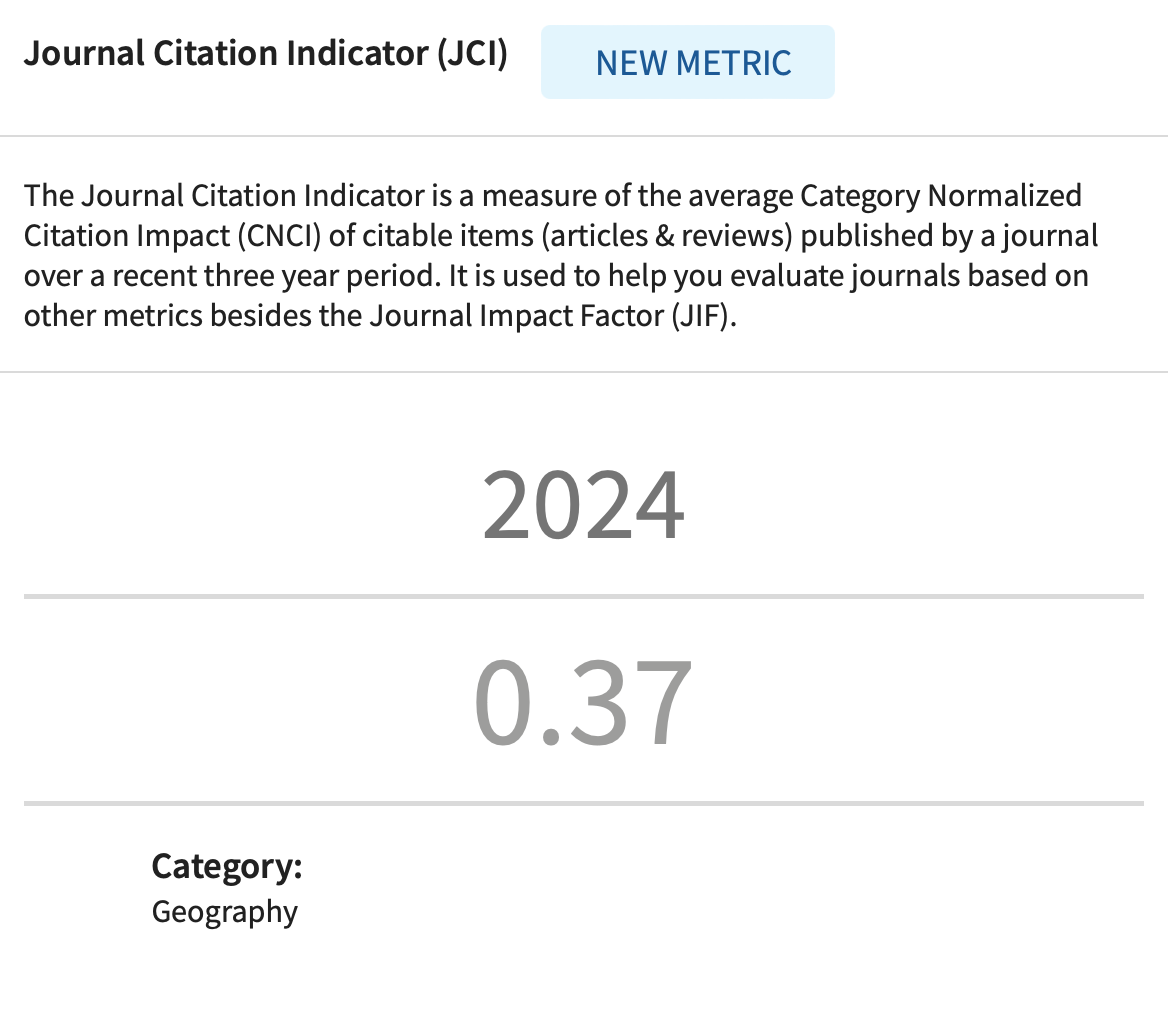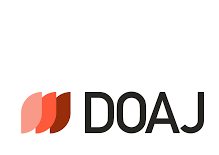RESEARCH ON THE FREQUENCY AND EFFECTIVENESS OF TEACHING METHODS IN GEOGRAPHY CLASSES: AN EXAMPLE OF SELF-OBSERVATION OF TEACHING PRACTICES
DOI:
https://doi.org/10.2298/IJGI2203307DKeywords:
curriculum, educational geography, self-observation of teaching processAbstract
Since the school year (SY) 2019/2020, the curriculum of Geography has been gradually implemented in Croatia. The purpose of this survey is to gather information on the frequency and effectiveness of teaching methods in Geography teaching over two school years by means of direct participant observation method. In the SY 2020/2021, a study was carried out in two high schools in Osijek-Baranja County for three learning outcomes. Using a pre-made template for the self-observation of the teaching process, 12 lessons in the second and the third grade were observed and later interpreted using descriptive statistics methods. During the SY 2021/2022, the same method was carried out for eight lessons in six schools with a high-school program for three learning outcomes in the second grade, two in the third grade, and one in the fourth grade. Results show the domination of the discussion teaching method, followed by indirect graphic method, and then work-on-text method, while among the most common methods used, the rarest are oral presentation (done by pupils) and direct graphic method. The results found demonstrate a significant shift toward the use of more effective teaching methods compared to older papers in Croatia. The students reported a higher level of satisfaction with the lessons than the teachers did. The method of direct participant observation, complemented with a structured interview, can provide relevant information on the quality of teaching as a prerequisite for the achievement of the learning outcomes specified in the curriculum for Geography.
Article metrics
References
Batdi, V. (2017). Smart Board and Academic Achievement in Terms of the Process of Integrating Technology into Instruction: A Study on the McA. Croatian Journal of Education, 19(3), 763–801. https://doi.org/10.15516/cje.v19i3.2542
Bernstein, E., & Lysniak, U. (2017). Teachers’ Beliefs and Implementation of Competitive Activities for Multicultural Students. Urban Education, 52(8), 1019–1045. https://doi.org/10.1177/0042085915602535
Bezinović, P., Marušić, I., & Ristić Dedić, Z. (2012). Opažanje i unapređivanje školske nastave [Perception and improvement of school teaching]. https://www.azoo.hr/app/uploads/uvezeno/datoteke/opazanje-web-1536878204.pdf
Bilač, S. (2015). Refleksivna praksa – čimbenik utjecaja na profesionalni razvoj, mijenjanje odgojno-obrazovne prakse i kvalitetu nastave [Reflective practice – the factor of influence on professional development, changing of educational practice and the quality of teaching]. Napredak, 156(4), 447–460. https://hrcak.srce.hr/file/245267
Bjedov, V. (2016). Zastupljenost govornih metoda u poučavanju i učenju hrvatskoga jezika [Representation of speaking methods in teaching and learning Croatian language]. Metodički ogledi, 23(2), 77–98. https://doi.org/10.21464/mo44.232.7798
Bognar, L., & Matijević, M. (2005). Didaktika [Didactics]. Školska knjiga.
Braičić, Z., Đuranović, M., & Klasnić, I. (2015). Teaching and Learning Methods and Practices in Science and Social Studies Lesson. Croatian Journal of Education, 17, 83–95. https://doi.org/10.15516/cje.v17i0.1524
Chaudhary, B. (2018). The role of ICT in promoting constructivism. International Journal of Technical Research & Science, 3(1), 1–4. https://doi.org/10.30780/IJTRS.V3.I1.2018.001
Cox, M., Elen, J., & Steegen, A. (2018). A test to measure students' systems thinking abilities in geography. European Journal of Geography, 9(1), 105–120. https://limo.libis.be/primo-explore/fulldisplay?docid=LIRIAS1989786&context=L&vid=Lirias&search_scope=Lirias&tab=default_tab&lang=en_US
Ćurković, N., Fulgosi, S., Katavić, I., & Mladinić, H. (2020). Razvoj, provedba i rezultati ispita kojim se mjeri kompetencija rješavanja problema u školama uključenima u eksperimentalni program „Škola za život“ u školskoj godini 2018/2019 [Development, implementation and results of the exam that measures problem-solving competence in schools included in the experimental program "School for Life" in the 2018/2019 school year]. https://www.ncvvo.hr/wp-content/uploads/2020/05/Razvoj-e-izdanje.pdf
Divjak, B., & Pažur Aničić, K. (2019). Priprema, praćenje i evaluacija eksperimentalnoga programa Cjelovite kurikularne reforme „Škola za život“ [Preparation, monitoring and evaluation of the experimental program of the Complete Curriculum Reform "School for Life"]. Nacionalni centar za vanjsko vrednovanje obrazovanja. https://skolazazivot.hr/priprema-pracenje-i-evaluacija-eksperimentalnog-programa-cjelovite-kurikularne-reforme-skola-za-zivot/
Glasnović Horvat, M., & Curić, Z. (2003). Verbalne metode u nastavi geografije [Verbal methods in Teaching Geography]. Metodika, 4(6), 96–110. https://www.bib.irb.hr/164038
Goldup, G. (2013). IPads in geographical fieldwork: A learning device or a hi-tech toy? Teaching Geography, 38(1), 24–25. https://www.jstor.org/stable/23756986
Ivić, I., & Vuk, R. (2021). Teaching methodology of geography and educational geography in Croatia over the last fifty years. Hrvatski geografski glasnik, 83(2), 103–132. https://doi.org/10.21861/HGG.2021.83.02.05
Jego, E. H., Udagawa, S., Taniguchi, T., Nemoto, H., Kamiyama, H., Hidai, C., & Fujita, Y. (2017). Effects of Flipped Classroom Methodologies on Performance Outcomes of an English Oral Communication Course for Basic Medical History Taking Skills in 1st year students at Nihon University School of Medicine. Nichidai Igaku Zasshi, 76(6), 267–271. https://doi.org/10.4264/numa.76.6_267
Jukić, R. (2013). Konstruktivizam kao poveznica poučavanja sadržaja prirodoznanstvenih i društvenih predmeta [Constructivism as a link between teaching contents of scientific and social subjects]. Pedagogical Research, 10(2), 241–263. https://hrcak.srce.hr/129671
Magaš, K., & Marin, D. (2013). Metodičko-didaktički aspekt nastave geografije u Republici Hrvatskoj [Methodological aspects of teaching geography in the Republic of Croatia]. Magistra Iadertina, 8(1), 165–192. https://hrcak.srce.hr/122649
Marić Jurišin, S., & Malčić, B. (2021). Refleksija nastavnika kao uslov unapređenja savremene školske kulture [Teacher reflection as a condition for improving modern school culture]. In I. Živančević-Sekeruš & Ž. Milanović (Eds.), Jedanaesti međunarodni interdisciplinarni simpozijum Susret kultura [The eleventh international interdisciplinary symposium Meeting of Cultures] (pp. 105–120). https://www.researchgate.net/publication/359746819_REFLEKSIJA_NASTAVNIKA_KAO_USLOV_UNAPREDENJA_SAVREMENE_SKOLSKE_KULTURE
Martin, F. (2014). Interpreting and Implementing the 2014 National Curriculum. Teaching Geography, 39(1), 14–15. https://www.jstor.org/stable/26455097
Matas, M. (1998). Metodika nastave geografije [Methodology of geography teaching]. Hrvatsko geografsko društvo.
Matijević, M., & Topolovčan, T. (2017). Multimedijska didaktika [Multimedia didactics]. Školska knjiga.
Matijević, M., Topolovčan, T., & Rajić, V. (2016). Teacher assessment related to the use of digital media and constructivist learning in primary and secondary education. Croatian Journal of Education, 19(2), 563–603. https://doi.org/10.15516/cje.v19i2.2411
Ministarstvo znanosti i obrazovanja. (2021). Škola za život: O projektu, Eksperimentalne škole [School for life: About the project, Experimental schools]. https://skolazazivot.hr/o-projektu/eksperimentalne-skole/
Ministarstvo znanosti, obrazovanja i sporta. (2016). Cjelovita kurikularna reforma [Comprehensive curricular reform]. http://www.kurikulum.hr
Narodne novine. (2019). Odluka o donošenju kurikuluma za nastavni predmet geografije za osnovne škole i gimnazije u Republici Hrvatskoj [Decision on the adoption of the curriculum for the subject of geography for primary schools and grammar schools in the Republic of Croatia]. https://narodne-novine.nn.hr/clanci/sluzbeni/2019_01_7_145.html
Oluwajana, D., Nat, M., & Fadiya, S. (2019). An Investigation of Students’ Interactivity in the Classroom and within Learning Management System to Improve Learning Outcomes. Croatian Journal of Education, 21(1), 77–102. https://doi.org/10.15516/cje.v21i1.3085
Pongračić, L., & Zečević, M. (2017). Konstruktivistički pristup u kontekstu suvremene nastave [A constructivist approach in the context of contemporary teaching]. In M. Puljarević (Ed.), Zbornik radova 10. Naučno-stručne konferencije “Studenti u susret nauci” sa međunarodnim učešćem [Proceedings of the 10th Scientific Conference ''Students Encountering Science'' with international participation] (pp. 466–473). https://www.bib.irb.hr/1076823
Radulović, L. (2011). Obrazovanje nastavnika za refleksivnu praksu [Teacher education for reflective practice]. Filozofski fakultet u Beogradu.
Rogošić, S., Baranović, B., & Šabić, J. (2021). Primjena IKT-a u procesu učenja, poučavanja i vrednovanja u srednjim strukovnim školama: kvalitativna analiza [Application of ICT in the process of learning, teaching and evaluation in upper secondary vocational schools: qualitative analysis]. Metodički ogledi, 28(1), 63–88. https://doi.org/10.21464/mo.28.1.6
Schindler, A. (2013). Teaching to teach, teaching to learn. Teaching Geography, 38(2), 69–71. https://www.jstor.org/stable/23755259
Šijaković, T. (2015). Mentorstvo u funkciji podsticanja refleksivne prakse nastavnika [Mentoring in the function of stimulating reflective practice of teachers; Unpublished Doctoral dissertation, Univerzitet u Novom Sadu, Filozofski fakultet, Odsek za pedagogiju]. National Repository of Dissertations in Serbia. https://nardus.mpn.gov.rs/bitstream/handle/123456789/4508/Disertacija10.pdf?sequence=6&isAllowed=y
Terhart, E. (2001). Metode poučavanja i učenja [Teaching and learning methods]. Educa.
Topolovčan, T., Rajić, V., & Matijević, M. (2017). Konstruktivistička nastava: Teorija i empirijska istraživanja [Constructivist teaching: theory and empirical research]. Učiteljski fakultet.
Vizek Vidović, V., Rijavec, M., Vlahović-Štetić, V., & Miljković, D. (2003). Psihologija obrazovanja [Psychology of education]. IEP, VERN.
Vranković, B. (2012). Nastavne metode i postignuća učenika osmih razreda iz geografije u zadacima uz grafičke priloge [Teaching methods and eighth grade pupil achievement in geography in items with graphic supplements]. Acta Geographica Croatica, 39(1), 77–98. https://hrcak.srce.hr/140977
Vuk, R., Vranković, B., & Šiljković, Ž. (2012). Postignuća učenika iz geografije Hrvatske na ispitima vanjskoga vrednovanja i percepcije učenika o geografiji kao nastavnom predmetu u osnovnoj školi [Pupils’ Achievements in the Geography of Croatia at External Evaluation Exams and their Perceptions of Geography as a Subject in Elementary School]. Hrvatski geografski glasnik, 74(1), 213–229. https://doi.org/10.21861/HGG.2012.74.01.11
Zahid, M., Varghese, R., Mohammed, A., & Ayed, A. (2016). Comparison of the problem based learning-driven with the traditional didactic-lecture-based curricula. International Journal of Medical Education, 7, 181–187. https://doi.org/10.5116/ijme.5749.80f5
Žiljak, T. (2013). Dvije faze obrazovne politike u Hrvatskoj nakon 1990. godine [Two phases of educational policy in Croatia after 1990]. Andragoški glasnik, 17(1), 7–25. https://hrcak.srce.hr/104939
Downloads
Published
How to Cite
Issue
Section
License
Copyright (c) 2022 Journal of the Geographical Institute “Jovan Cvijić” SASA

This work is licensed under a Creative Commons Attribution-NonCommercial-NoDerivatives 4.0 International License.











